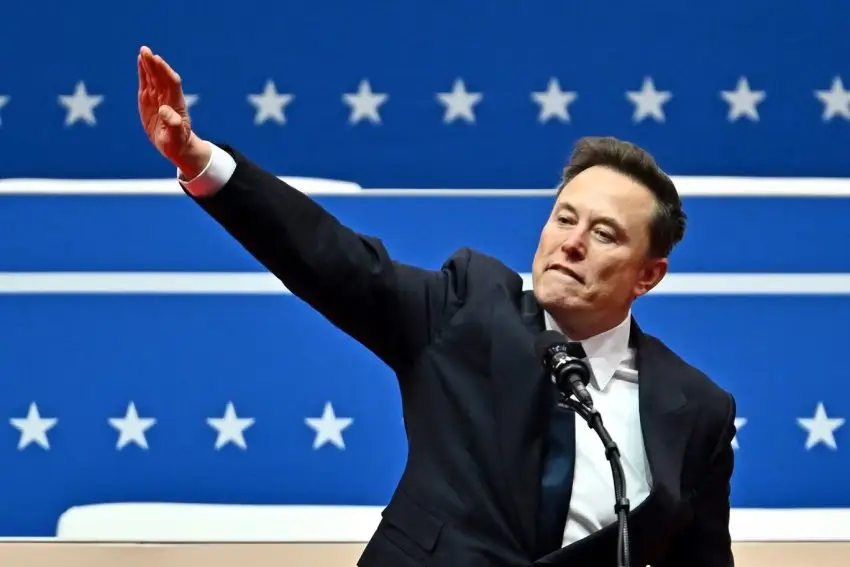Musk’s philosophy or one can say, Muskist philosophy is built on a first-principles approach—breaking complex systems down to their fundamental truths and rebuilding them for efficiency. Applying this to government, he envisions a system devoid of bureaucratic bloat, where overregulation, inefficiencies, and budgetary excesses are mercilessly excised in favour of lean, data-driven decision-making. The American permitting process, for instance, has frequently found itself in Musk’s crosshairs. Whether it’s securing approval for a new Gigafactory or launching Starship into orbit, Musk has openly criticised the sluggish pace of government agencies that take years to do what private companies achieve in months. In one particularly pointed remark, he noted that bureaucracies operate under the assumption that adding layers of oversight always improves outcomes, whereas in reality, it often achieves the opposite.
Read moreCategory: South Asia
News and Analyses of events in South Asia
Modi’s MEGA Pact with Trump as China Watches with Unease
On India, Trump, and China In the shifting twilight of history, where the ghosts of empire whisper through marble halls and the scent of power lingers like the perfume of an aging monarch, a spectacle unfolded in the White House on February 13, 2025. This was not merely a diplomatic engagement but a ritual—an incantation…
Read moreThe Role of Think Tanks in Legitimizing CIA-Backed Regime Change Operations
If history is any guide, these think tanks will continue to provide intellectual cover for future regime change operations. Perhaps tomorrow’s target will be Venezuela, where think tank reports have long painted Nicolás Maduro as an existential threat to regional stability. Or maybe it will be Iran again, where “experts” routinely warn about the dangers of its nuclear program, conveniently ignoring the long history of U.S. meddling in Iranian affairs. Wherever the next intervention occurs, one can be sure that a glossy think tank report will be there to justify it.
Read moreTrump’s Gaza Takeover and the Chaos That Will Follow
And then there’s Israel, which might be celebrating now but could soon regret this whole thing. Sure, the Israeli government loves a plan that involves fewer Palestinians in Gaza, but at what cost? If Hamas gets stronger, Hezbollah gets bolder, and international condemnation reaches new heights, Israel could find itself more isolated than ever. Even its European allies, who have been fairly tolerant of Israeli policies, might start pulling away. Because, let’s face it, even the most pro-Israel European leaders will struggle to justify a U.S.-led eviction of Palestinians. At some point, the international community might have to draw the line, and when they do, Israel could find itself in a diplomatic mess of its own making.
Read moreAmena’s Fight for Hope in the Wake of USAID’s Retreat
Even in Bangladesh, where USAID had played a critical role in disaster relief and development, its programs were not free from controversy. Some agricultural initiatives led to environmental damage, while governance projects were accused of undermining local institutions by favoring foreign NGOs over national efforts. The 2025 funding suspension only reinforced the notion that USAID’s presence was as much about American strategic interests as it was about humanitarian assistance. For Amena and her community, the suspension is a stark reminder of their vulnerability, their dependence on the goodwill of a distant power that can withdraw its support at any moment.
Read moreThe Rise of AI and the Future of Geopolitical Inequality from Bangladesh’s Perspective
Bangladesh’s economy stands at a junction where AI could become a game-changer. With targeted efforts in textiles, healthcare, defence, and agriculture, the country could unlock new efficiencies and innovations. Developing AI systems tailored to local languages and cultures would amplify these benefits, turning linguistic diversity into a geopolitical asset. However, infrastructure gaps, skill shortages, and limited R&D investments are roadblocks that cannot be ignored. Addressing ethical concerns, such as data privacy and algorithmic fairness, will also be key to ensuring that AI’s benefits are equitably distributed.
Read moreBangladesh’s Legal Sovereignty vs. ICC’s Western Strings
The ICC’s geopolitical bias not only affects the credibility of its operations but also has diplomatic consequences. Countries with associations to ICC interventions face the risk of diplomatic fallout, affecting their global standing and relationships. For Bangladesh, submitting to ICC scrutiny can have far-reaching effects beyond the courtroom, potentially influencing its trade, aid, and diplomatic engagements.
Read moreWhy do Politicians Fail in Bangladesh? The Kettle, the Slogans, and the Weight of Broken Promises
To break free of its cycles of failure, Bangladesh must confront its challenges head-on. Strengthening democratic institutions is essential. An independent judiciary, fair elections, and a vibrant but not power-hungry civil society can serve as pillars of accountability. Corruption must be rooted out with the same determination that built bridges and cities, and nepotism must give way to a meritocracy that values competence over connections.
Read morePakistan and Afghanistan Locked in a Spiral of Strife
In this increasing chaos, there are glimmers of potential solutions. Diplomatic engagement remains a vital avenue. Recent initiatives, such as the visit of Pakistan’s special envoy to Afghanistan, signal a willingness to address shared concerns. However, dialogue must be sustained and substantive, focusing on practical measures like joint border management and intelligence sharing. The involvement of regional powers like China and Russia could also provide a neutral platform for negotiations. China, with its investments in Pakistan and security concerns in Xinjiang, has a national stake in regional stability, while Russia’s historical experience with Afghan insurgencies positions it as a potential mediator.
Read moreCan Sazia’s Winter Reverie Forge Bangladesh’s Path Beyond D8’s Broken Promises?
Despite these shortcomings, dismissing the D8 entirely would be shortsighted. The organisation serves as a platform for dialogue, fostering diplomatic goodwill among its members. Initiatives in food security and industrial collaboration, though limited in tangible outcomes, have at least sparked conversations about shared challenges. For Bangladesh, the D8 represents a symbolic connection to the global south and an affirmation of its aspirations to collaborate with peer nations.
Read more









